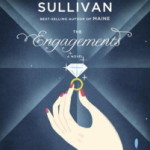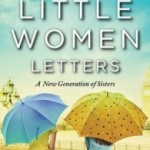It’s a question people have been trying to answer since the beginning: What is a feminist?
The answer, my friends, is very simple: It depends on your definition of “feminism.”
Yea, I know, not really that helpful. But that’s actually about as simple as it can get. Join me today as I kick off a two-part series on feminism, in all its glory and insanity.
This is What a Feminist Looks Like
It’s been quite awhile since I took a look at a simple timeline for the Women’s Movement, but from what I recall, the whole thing got started in 1848 with Elizabeth Cady Stanton (although Abigail Adams, who died in 1818, had been speaking out against slavery and the devaluing of women her entire adult life), and the ball has been rolling at top speed ever since.
Most scholars separate the Women’s Movement into three separate “waves”:
Wave 1 – 19th and early 20th century
- It was during this time that the biggest marches and most political confrontation occurred. In 1918 women in a handful of states were granted suffrage, although it was 1928 before every state had given women the vote.
Wave 2 – Early 1960s though late 1980s
- Think bra burning (although that didn’t actually happen), Simone de Beauvoir and The Second Sex, and (most famously) Betty Friedan’s The Feminine Mystique.
Wave 3 – Early 1990s to today
- A movement that is a continuation of and a response to the perceived failures of the Second wave. This wave consists of many “non-traditional” feminists (i.e., not middle-aged white housewives), including African-Americans, Latinos, and the LGBT community (“Lesbian, Gay, Bisexual, and Transgender”). Each group faces its own challenges and prejudices, and members of the Third wave are trying to figure out how to help themselves without harming others.
Despite having a detailed history and well-organized communities, many feminists don’t (or can’t) agree on exactly what feminism means, is, or entails. So sometimes conversations that begin in a friendly enough manner can devolve into a yelling match about who is or is not a “bad feminist.”
What is the definition of a “bad” feminist, you ask? Simple: See the answer to “What is a feminist?”
My Inner Bitch– I Mean, Feminist
I’m not really sure how long I’ve considered myself a feminist. I don’t have a crystal-clear memory of an “Aha!” moment in which the light shone from heaven, angels sang a chorus of hallelujahs, and I thought, “Now I am a feminist!” I don’t know how the experience is for other people, though. What I am sure of, however, is that my mother had a great influence on how I thought about my femaleness.
I was raised by a single mother. My father and extended family was–and continues–to be a presence in my life, but with everyone else at least an eight-hour drive away, it was pretty much just myself and my mother for a good many years. I saw her work very hard to keep me fed and in good clothes, as well as in private school–I always got whatever I wanted for Christmas and birthdays, plus lots of extra stuff for which I hadn’t even asked. I was spoiled, and my mother worked hard to keep both of us healthy and doing whatever we wanted to do (going swimming, buying books we wanted, going to movies, shopping, etc.). It’s not a huge secret that children pay close attention to what their parents do–it’s how we learn.
So I learned from my mother how to be a feminist, even though I didn’t even hear the word, or learn about the concept, until high school. I saw that my mother was able to raise me, and be relatively happy, without the assistance of a husband. And if she could do that, by God, that means that I could as well!
So in a way I’ve been a feminist (if a slightly strange one) all my life. My absolute need for independence has its good and bad aspects: on one hand, it keeps me tough, able to stand up for myself when I feel its necessary; on the other hand, it tends to leave my poor Best Friend rather confused sometimes. It also leads to my being frustrated when I feel that I am not pulling my weight, either in my relationship or in more mundane everyday things, like bills. I think there’s a part inside every person that hates depending on someone else, especially for financial support. No one enjoys feeling beholden to anyone else.
I knew I was doing it right (“it” meaning “being a feminist”) when I was being called a “feminazi” at fifteen years old. I’m by no means an activist, but my “I won’t take bullshit from any guy” attitude raised a couple of eyebrows.
I also think that there are some in the feminist community who would label me as “a bad feminist.” And I can’t really blame them. I’m an odd mix of radical and traditional; I love old-fashioned romance and chivalry, but if I even catch the merest whiff of “You can’t do that because you’re a woman,” boy howdy, be prepared to lose an appendage!
I don’t identify with many Third wave feminists. Many of the behaviors revolve around the idea that equality with men is attained by a woman’s acting like a man. I really do believe that there are differences between the sexes, and acting like the sex you want to be equal to does not automatically make you so. This sort of behavior is–I think–degrading to your own gender. I’ll be giving you guys some great examples of what I’m talking about on Sunday, with my review of an excellent book by Ariel Levy.
It was a conversation between Best Friend and myself that sparked my idea of writing about feminism here at the blog. I enjoy reading and reviewing books, and helping people figure out what they like, but I also consider it important to let people see what kind of person I am, and where I’m coming from.
To me, being a feminist is about choice. Not only do I choose to define my personal feminist manifesto as I wish, I also reserve the right to live my life in a manner befitting that manifesto.
I want to be with my Best Friend because I love him, not because I cannot support myself without his assistance. Oddly enough, when I say “assistance,” I am generally referring to the financial aspects of living. I am somehow more comfortable depending on him for affection and emotional support than I am for money. But before I start talking in circles, I’m going to add some quotes that explain what I think far better than I have the talent to express.
“In an ideal relationship both partners know they can live perfectly well without each other, but they also know that they much prefer to live with each other.” -Karen Horney
“Marriage should be a partnership–not an absorption by the greater of the less; not one part active and the other passive; one giving, the other receiving; one maintaining, the other maintained; none of these, but instead a perfect partnering, a perfect equality that should be equality of place, equality of privilege, equality of duty, equality of freedom.” -Radclyffe Hall
I love being in love, and wouldn’t give it up for the world. But I–like everyone else–want to love on mutually equal terms.
The Bigger Issue
I hate to be all “Can’t we all just get along?” but…can’t we all just get along?!
I read (and have read) feminist perspectives ranging from radical all the way to sounds-like-feminism-but-really-is-sexism-masquerading-as-feminism. And the thing is…I like aspects of each.
I have an entire shelf in one of my bookcases dedicated to feminist literature (including lots of Psychology texts), and I noticed the other day that Wendy Shalit’s A Return to Modesty is jacket-to-jacket with Jessica Valenti’s Full Frontal Feminism–how this has not yet created a black hole in my apartment, I’m not sure. But there it is. And I wish this were how feminists could be: arguing and disagreeing when necessary, but also learning how to coexist and enter into helpful dialogue with one another.
Supplemental Study Materials
Feministing.com — “Young women are rarely given the opportunity to speak on their own behalf on issues that affect their lives and futures. Feministing provides a platform for us to comment, analyze, influence and connect.”
Professor, What If… — “Professor What If seeks to ask: What if the world was different? What if we lived on a planet not governed by a white supremacist, corporatist, militarist patriarchy? What if we lived in a society that truly valued diversity and was not addicted to power, wealth, and image? What if we admitted we do not have the answers, that we are woefully inadequate at shaping a globe in which all people have access to clean water, to education, to reproductive justice, to health care, to the pursuit of happiness that comes not at the expense of others or the imposition of power?”
“To all of the kick ass, beautiful fierce femmes out there… — A spoken poem by Ivan Coyote. “Ivan believes in the transformative power of storytelling, and that collecting and remembering oral history not only preserves a vital part of our families and where we come from, but that a good story can help inspire us to reinvent a better future.” (gotta love the storytelling!)
What is your definition of feminist/feminism? Of equality? Do you consider yourself to be a feminist? Is it possible to not be a feminist, and yet not be a misogynist, or is it a case of one or the other?






